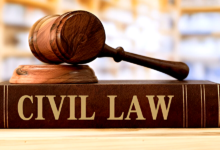
Legal Rights for Tenants Facing Unlawful Eviction
Legal rights for tenants facing unlawful eviction Know your protections against illegal lockouts, utility shutoffs & wrongful displacement Learn how to fight back legally.
Legal rights for tenants facing unlawful eviction are essential protections that ensure fair treatment under housing laws. When landlords attempt to force tenants out without following proper legal procedures, it constitutes an unlawful eviction a violation that leaves many renters vulnerable and uncertain about their next steps. Fortunately, both federal and state Legal Rights provide strong safeguards to prevent such injustices. This guide explores tenant rights, legal remedies, and practical steps to combat wrongful displacement, empowering renters to defend their homes effectively.
In conclusion, tenants should never feel powerless when confronting an unlawful eviction. By understanding their legal rights for tenants facing unlawful eviction, documenting landlord misconduct, and seeking professional legal assistance, renters can challenge illegal actions and secure justice. Landlords must adhere to strict legal protocols, and tenants have every right to hold them Legal Rights when they fail to do so. With the right knowledge and resources, renters can protect their housing stability and ensure their rights are upheld in court.
Legal Rights for Tenants Facing Unlawful Eviction
Forms and Illegality of Unlawful Eviction
Unlawful eviction occurs when landlords illegally circumvent formal eviction procedures by employing coercive tactics to forcibly remove tenants, including physically changing locks or installing new security devices to deny access, intentionally shutting off Legal Rights utilities like water, electricity, or heating to render the unit uninhabitable, unlawfully disposing of a tenant’s personal belongings without authorization or court approval, or using threats, harassment, or intimidation to pressure tenants into vacating. These prohibited “self-help” eviction methods violate tenant rights Legal Rights nearly all U.S. jurisdictions as they deliberately bypass the constitutionally required.
Legal Framework Protecting Tenants
Tenant protections operate across federal, state, and local levels to create a comprehensive defense against unlawful evictions. At the federal level, while there is no overarching eviction law, key protections include the Protecting Tenants at Foreclosure Act (PTFA), which guarantees tenants a minimum 90-day notice period when their rented property undergoes foreclosure, and the Fair Housing Act, which prohibits discriminatory eviction practices. The most robust safeguards, however, originate at state and local levels, where laws typically mandate that landlords obtain court orders for all evictions, require 30–60-day notice periods depending on lease terms and jurisdiction.
Key Legal Protections Against Unlawful Eviction
Tenants should be aware of several critical legal protections designed to prevent wrongful displacement. First and foremost, self-help evictions where a landlord takes direct action to remove a tenant without court approval are universally prohibited. Courts have consistently ruled that landlords must use the judicial system to evict tenants, even in cases of unpaid rent or lease Legal Rights. Cities with strong tenant protections, such as New York, San Francisco, and Los Angeles, often have additional rent control ordinances that further restrict a landlord’s ability to displace tenants without cause.
Steps Tenants Should Take When Facing Unlawful Eviction
Immediate Evidence Collection & Police Involvement
When facing an unlawful eviction, tenants should immediately begin compiling comprehensive evidence by taking timestamped photos or videos of any illegal lock changes, utility disconnections, or property damage, while also preserving all communications with the landlord including saved texts, emails, voicemails, and written notices that demonstrate the unlawful actions. Equally important is maintaining organized records of rent payment receipts and the original lease agreement to prove compliance with rental terms. Simultaneously, tenants must contact local law enforcement to file a formal police report, as officers can often intervene to restore immediate access to the property.
Legal Action & Protective Measures
When facing an unlawful eviction, tenants should immediately seek legal support through tenant unions, legal aid organizations offering free or low-cost services, and specialized housing attorneys who can issue formal cease-and-desist letters to halt illegal actions, while tenant rights hotlines can provide urgent guidance on next steps. If the landlord persists with unlawful eviction attempts, tenants have strong legal recourse through lawsuits alleging wrongful eviction, breach of lease terms, or housing code violations, with courts empowered to order remedies including reinstatement of tenancy, monetary damages for losses incurred.
Legal Remedies Available to Tenants
Restoration of Tenancy & Compensation for Losses
Tenants who prove unlawful eviction in court may secure reinstatement, where a judge orders the landlord to restore their occupancy especially critical for illegal lockouts or utility shutoffs. Courts can also award actual damages to reimburse financial losses, including costs for temporary Legal Rights, moving expenses, and replacement of damaged belongings. In cases of severe emotional harm, tenants may recover emotional distress damages if they demonstrate the eviction caused significant mental suffering.
Punitive Measures & Attorney Fee Recovery
For especially egregious misconduct, judges may impose punitive damages to punish the landlord and deter future violations. Some states also allow tenants to recover attorney’s fees, reducing the financial burden of legal action and ensuring broader access to justice. These remedies collectively reinforce tenant protections while holding landlords Legal Rights for unlawful behavior.
Preventing Unlawful Eviction Proactive Measures for Tenants
Educate Yourself and Document Everything
Carefully review lease agreements before signing, with special attention to termination clauses and eviction procedures. Study local tenant laws through government-published rights Legal Rights. Maintain thorough records of all communications with landlords, especially repair requests and payment agreements. Keep copies of all important documents (lease, payment receipts, repair requests).
Build Support Networks Before Problems Arise
Establish open communication with landlords to address issues early. Research local tenant resources (legal aid, advocacy groups) before emergencies occur. Connect with tenant unions to understand your rights and available protections. Legal Rights contingency plans for potential housing disputes by knowing legal options in advance. Stay organized with documentation to quickly respond to any unlawful actions.
Read More: Arrested in the UK Here’s What to Do Legally
Conclusion
Legal rights for tenants facing unlawful eviction exist to level the playing field between landlords and renters. No one should be forced out of their home without due process, and the law provides multiple avenues for tenants to fight back. By documenting violations, seeking Legal Rights counsel, and pursuing justice in court, tenants can hold landlords accountable and protect their housing stability.
Ultimately, awareness is the most powerful tool against unlawful eviction. Tenants who understand their rights are far less likely to be victimized by predatory landlords. Whether through legal action, community support, or public advocacy, Legal Rights have the power to demand fair treatment and secure the protections they deserve.
FAQs
What qualifies as an unlawful eviction?
An unlawful eviction occurs when a landlord tries to remove a tenant without a court Legal Rights, such as by changing locks, shutting off utilities, or using threats.
Can I break my lease if my landlord illegally evicts me?
Yes, in many cases, Legal Rights can terminate their lease without penalty and may even sue for damages if the eviction was illegal.
How long does a lawful eviction process take?
The timeline varies by state, but Legal Rights must typically provide 30-60 days’ notice before filing for eviction in court, which can take weeks or months.
What should I do if my landlord throws out my belongings?
Call the police, document the Legal Rights, and consult a lawyer landlords cannot legally dispose of a tenant’s property without a court order.
Where can I find free legal help for an unlawful eviction?
Local legal aid societies, tenant unions, and bar associations often provide free or low-cost assistance to renters facing illegal eviction.







